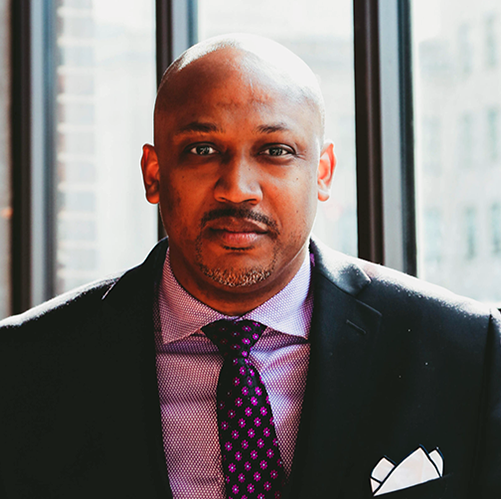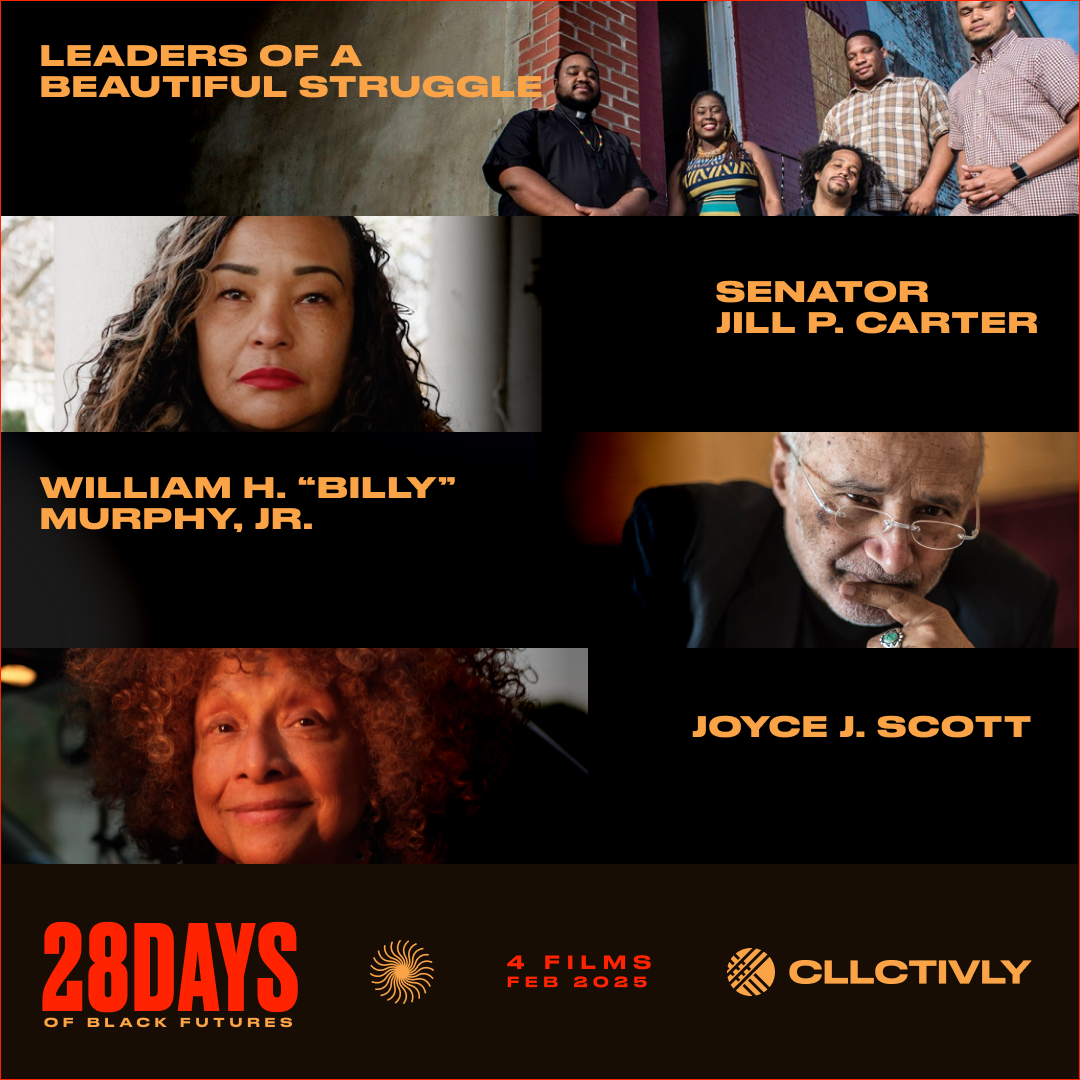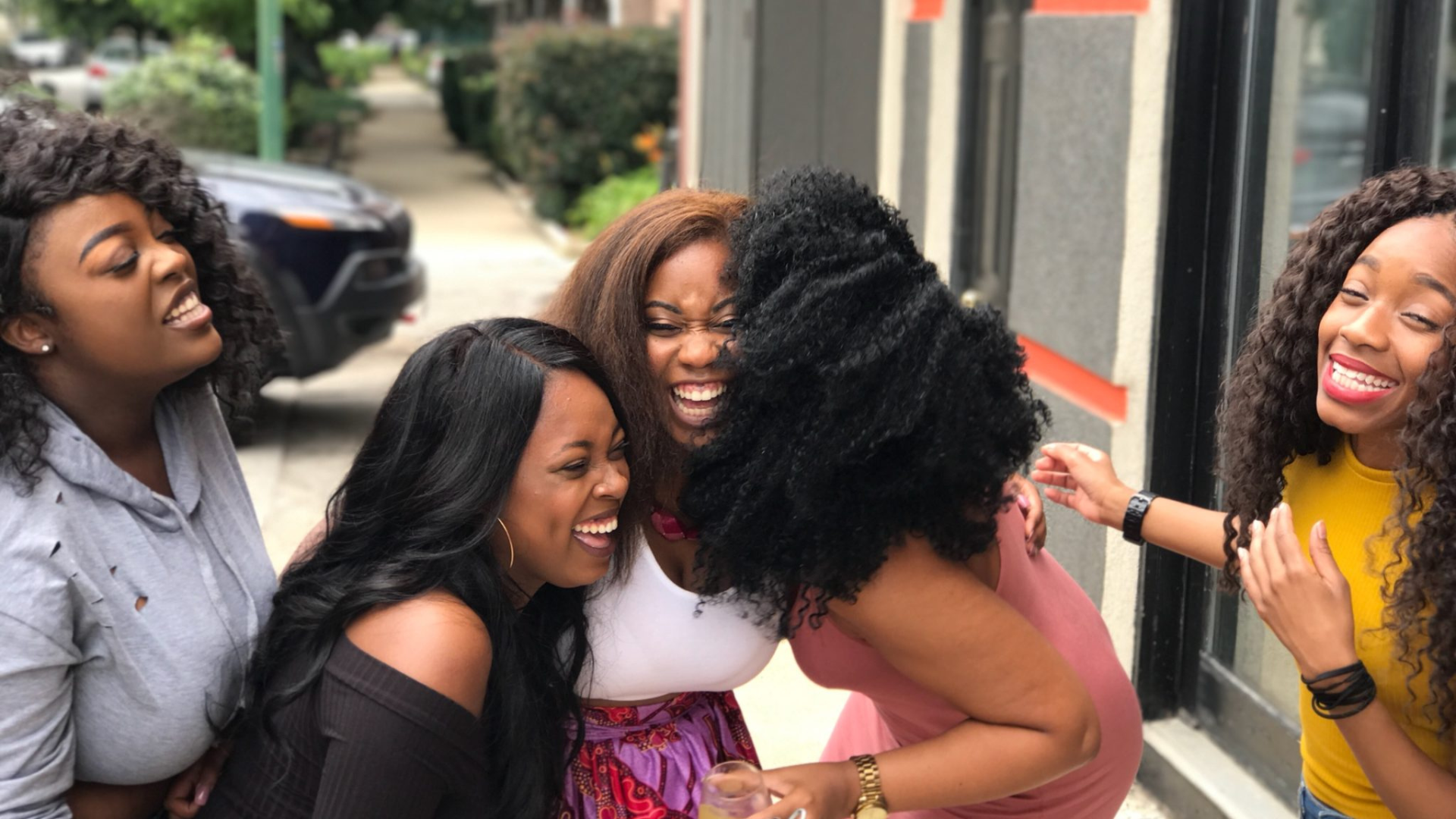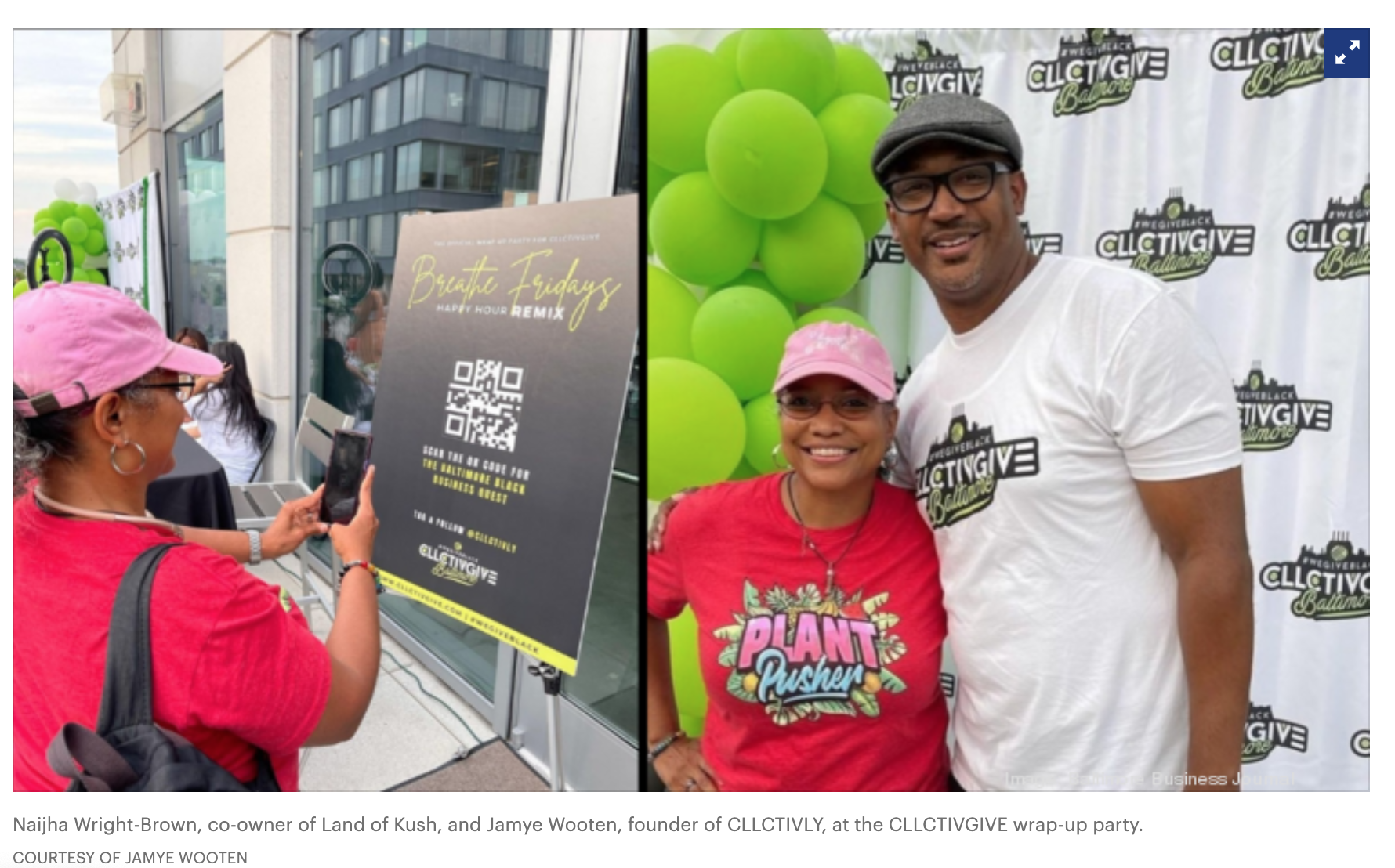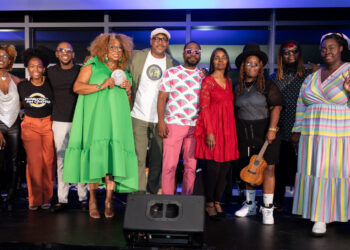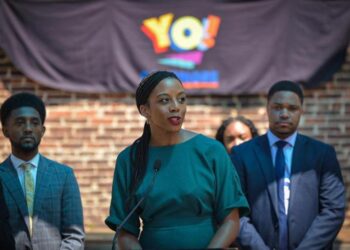CLLCTIVLY’s founder, Jamye Wooten, featured in the Fall issue of John Hopkins Magazine.
Elizabeth Evitts Dickinson / Published Fall 2020
In the spring of 2015, Jamye Wooten took a reverend from Ferguson, Missouri, on a tour through Baltimore. It was several weeks after Freddie Gray, a 25-year-old Black man, died while in police custody. The city was in turmoil after protests over police brutality led to an uprising that captured the nation’s attention and resulted in National Guard tanks mobilized in the streets for the first time since Martin Luther King Jr. was shot in 1968. Wooten had helped community members process and organize after Gray’s death. His guest, who came from the city where Michael Brown had been shot by police several months earlier, was visiting to train fellow clergy in peaceful protest strategies. While driving through one part of town, they passed boarded-up houses, abandoned ball fields, and burned-out buildings.
“Did the uprising happen over here, too?” the reverend asked.
Wooten shook his head. “No, this neighborhood has been boarded up like this for the last 20 years,” he said.
Seeing the city fresh through the eyes of an outsider jolted Wooten. His colleague was “looking at parts of Baltimore as if they were the result of the uprising,” Wooten says. “But the destruction was really from years of structural violence and disinvestment in Black neighborhoods.”
Wooten describes himself, in no particular order, as an activist, digital strategist, and social entrepreneur. He founded a consulting firm for faith-based and nonprofit outfits, and has organized and documented social movements from across the United States, United Kingdom, and Africa. These days, Wooten mostly thinks about the financial burdens of being Black. He grew up in Baltimore and has made it his life’s mission to support Black lives and businesses. For three years, he worked as program director with the faith-based Collective Banking Group to help finance Black organizations. Read Full Article
